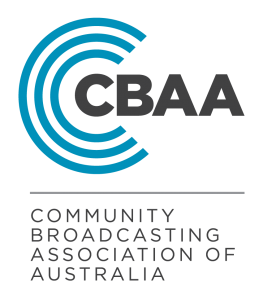
The CBAA endorses calls for safer workplaces for both volunteers and paid workers
Two important submissions have been made this week to the Australian Human Rights Commission’s (AHRC) national inquiry into sexual harassment.
Support for volunteers
Volunteering Australia and Justice Connect have made a joint submission highlighting the inadequacy of the current legal framework in Australia to prevent and address sexual harassment against volunteers and other unpaid workers and recommending a way forward.
Gaps in the law can allow for unequal treatment between paid and unpaid workers (including volunteers) when it comes to sexual harassment depending on where in Australia they volunteer. This has ramifications for the safety and wellbeing of volunteers and other unpaid workers, and sends a message they are valued less than paid workers.
#Power2Prevent
Victoria Legal Aid has coordinated a coalition of over 100 stakeholders in the legal, health, community, family violence and union sectors to advocate for key reforms. Together they have submitted a joint statement to the AHRC inquiry, called #Power2Prevent.
They call on State, Territory and Federal Governments across Australia to take urgent and coordinated action to implement the following solutions.
- Dedicated prevention efforts to address the underlying gendered drivers of sexual harassment, which should be part of a holistic strategy to prevent violence against women and promote gender equality in line with Change the story: A shared framework for the primary prevention of violence against women and their children in Australia.
- Stronger and clearer legal duties on employers to take proactive steps to prevent sexual harassment at work, and strong and effective regulators that have the full suite of regulatory tools and resources necessary to effectively tackle sexual harassment, including as a cultural, a systemic and a health and safety issue.
- Access to fair, effective and efficient complaints processes, including a new right of action under the Fair Work Act, extended time limits, increased transparency of conciliation outcomes where appropriate, and other amendments and resources necessary to address the unique barriers that currently prevent workers who experience sexual harassment from taking effective legal action.
- Appropriate advocacy and support for workers who experience sexual harassment, including access to information, counselling and legal services that are appropriately resourced and coordinated.
- Accessible reporting tools, including piloting an online reporting tool that assists people to report and address problem behaviour and seek support, and identifies trends to assist with prevention and enforcement efforts.
In support
The CBAA publicly endorses both of these submissions, and calls for the AHRC inquiry, as well as State, Territory and Federal Governments across Australia, to address reccomendations that provide for safe workplaces for both volunteers and paid workers.
Get resources for your station to help prevent sexual harassment, as well as for supporting volunteers and staff.
Facebook comments